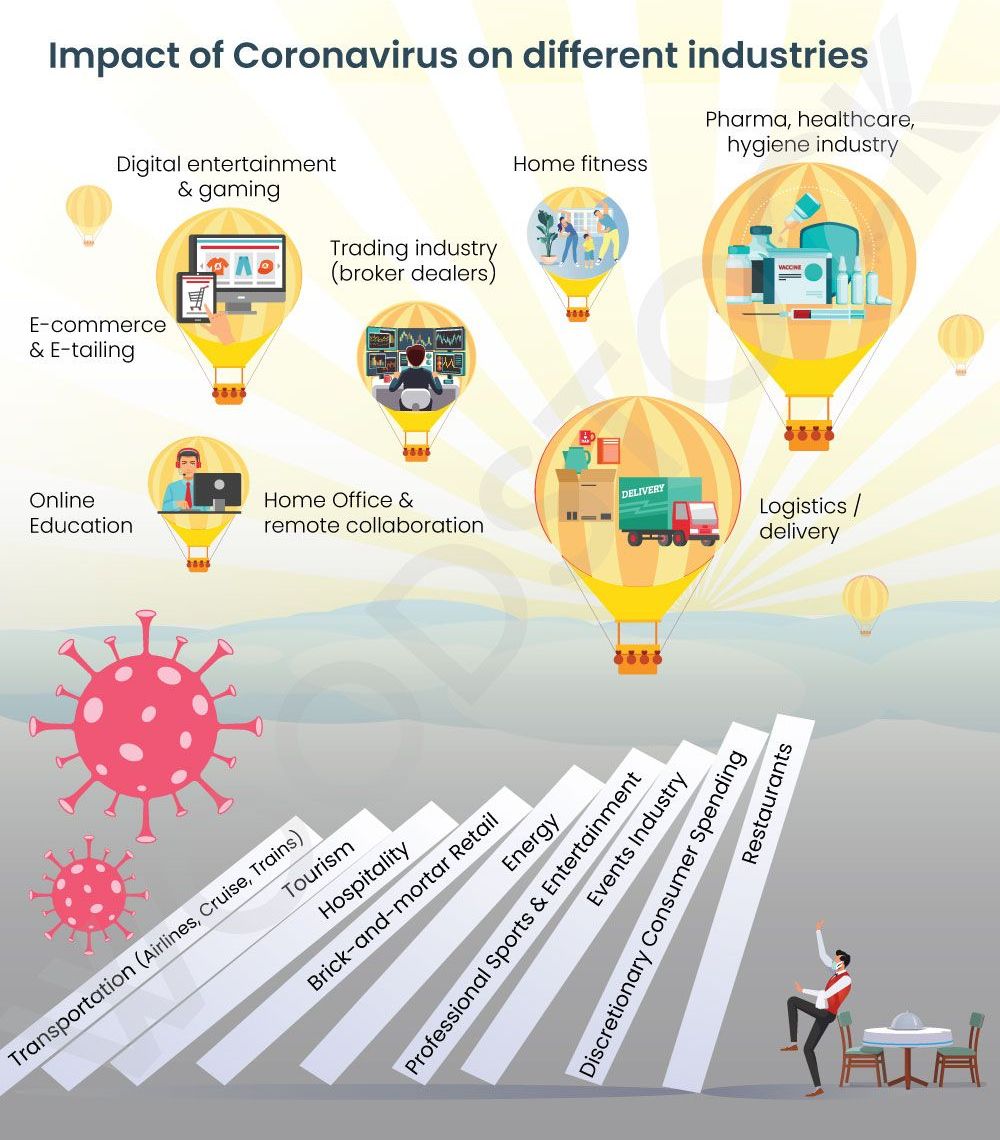Deep reinforcement learning has trained AIs to beat humans at complex games like Go and StarCraft. Could it also do a better job at running the economy?
By
 Tony Webster / Flickr.
Tony Webster / Flickr.

Deep reinforcement learning has trained AIs to beat humans at complex games like Go and StarCraft. Could it also do a better job at running the economy?
By
 Tony Webster / Flickr.
Tony Webster / Flickr.


As expected, they discovered large fluctuations in the composition and daily changes of the human and mouse gut microbiomes. But strikingly, these apparently chaotic fluctuations followed several elegant ecological laws.
“Similar to many animal ecologies and complex financial markets, a healthy gut microbiome is never truly at equilibrium,” Vitkup says. “For example, the number of a particular bacterial species on day one is never the same on day two, and so on. It constantly fluctuates, like stocks in a financial market or number of animals in a valley, but these fluctuations are not arbitrary. In fact, they follow predictable patterns described by Taylor’s power law, a well-established principle in animal ecology that describe how fluctuations are related to the relative number of bacteria for different species.”
Other discovered laws of the gut microbiome also followed principles frequently observed in animal ecologies and economic systems, including the tendency of gut bacteria abundances to slowly but predictably drift over time and the tendency of species to appear and disappear from the gut microbiome at predictable times.
“It is amazing that microscopic biological communities—which are about six orders of magnitude smaller than macroscopic ecosystems analyzed previously—appear to be governed by a similar set of mathematical and statistical principles,” says Vitkup.
Laws allow identification of abnormal bacterial behavior.
These universal principles should help researchers to better understand what processes govern the microbial dynamics in the gut. Using the statistical laws, the Columbia researchers were able to identify particular bacterial species with abnormal fluctuations. These wildly fluctuating bacteria were associated with documented periods of gut distress or travel to foreign countries in humans providing data for the study. Thus, this approach may immediately allow researchers to understand and identify which specific bacteria are out of line and behave in a potentially harmful fashion.
Using mice data, the researchers also observed that microbiomes associated with unhealthy high fat diets drift in time significantly faster compared with microbiomes feeding on healthier high fiber diets. This demonstrates that ecological laws can be applied to understand how various dietary changes may affect and perhaps alleviate persistent microbiome instabilities.
Overview global economy.
America has dominated global finance for decades. But could covid-19 tip the balance of financial power in China’s favour?
Further reading:
Sign up to The Economist’s daily newsletter to keep up to date with our latest covid-19 coverage: https://econ.trib.al/YD53WI6
Find The Economist’s most recent coverage of covid-19 here: https://econ.st/2QXX9sJ

The new coronavirus invades the body through a spike protein that lives on the surface of virus cells. The S protein, as it’s called, binds to a receptor called angiotensin-converting enzyme 2 (ACE2) on a healthy cell’s surface. Once attached, the cells fuse and the virus is able to infect the healthy cell.
ACE2 receptors are present on cells in many places throughout the body, and especially in the lungs. Cells in the lungs are also some of the first to encounter the virus, since the primary form of transmission is thought to be breathing in droplets after an infected person has coughed or sneezed.
That’s why it was necessary to upgrade Stem Cell Neurotherapy for COVID-19 by adding T-Cells, B-Cells, and Natural Killer Cells to the arsenal. It was not enough to just regenerate new lung cells to replace the lung cells infected by COVID-19, but the COVID-19 Virus Cells had to be attacked and destroyed in order to prevent them from invading and infecting the newly regenerated lung cells.
So, that’s where the idea of using T-Cells, B-Cells, and Natural Killer Cells, usually used in attacking cancer cells, came from.
A patent has been granted by the Ministry of Economy for the development of an innovative and promising treatment for COVID-19 infections using stem cells. The treatment was developed by a team of doctors and researchers at the Abu Dhabi Stem Cell Center, ADSCC, and involves extracting stem cells from the patient’s own blood and reintroducing them after activating them.
The patent was granted for the innovative method in which the stem cells are collected.



The choices we make today, and it’s consequences will shape up this decade. Can we break the current pattern, engage with this new financial system and adapt to new realities? #blockchain
As human beings, we are defined by patterns. Our collective pattern defines society. We are empowered with choices – furthering the patterns, or breaking them or creating new ones. In the physical world, these choices could be social, economic, technological, or ecological. Based on the choices we make – good, bad, or ugly, we enjoy or suffer consequences. COVID-19 escalated the macroeconomic situation leading to liquidity, demand, and supply shocks. Can we break the current pattern and embrace digitization, decentralization and sound money? In turn, making choices that will create affirmative consequences for humanity.
Patterns, Choices & Consequences
On the late evening of 5th July 2004, one of our core team members was driving on Mumbai – Pune highway in a Maruti 800, after an offsite monthly sales review in Mumbai (India). He had to be in Pune for an early morning sales leadership training program. It was getting dark and he was trying his best to get out of Mumbai traffic onto the expressway. Once he reached the expressway, he felt it would be a breeze to get to Pune. This was his usual circuit and he was cruising at about 80 km per hour (not high speed or rash driving by any standards). He was ambitious. Past midway the weather conditions suddenly changed and it started pouring with no visibility beyond two feet. He pushed the accelerator trying to overtake a bus. He hadn’t bothered to check that the tyres were worn out and there was mud sludge on the road. He was ill-prepared and complacent. This lethal combination made his car lose control, spinning and toppling and diving next to a waterlogged canal.

There is an interesting case of a blockchain engineer and a crime in the article.
A district court in China has reportedly ruled that Ethereum’s cryptocurrency is legal property with economic value. This ruling follows a couple of other verdicts on the legality of cryptocurrency, including bitcoin, by various Chinese courts. While cryptocurrency is not legal tender in China, people can hold and transfer them like property.
The Shenzhen Futian District People’s Court in Guangdong Province, China, has ruled that ether is legal property, protected by Chinese law, local media reported last week. This means that the Chinese are not barred from owning or transferring the cryptocurrency, local publication 8btc explained, adding that according to the court ruling:
The crypto assets represented by ETH have economic value and can be traded publicly.
Renewable sources including solar, wind and hydropower generated more electricity than coal-based plants every single day in April, a new report says.
Analysis shared by the Institute for Energy Economics and Financial Analysis (IEFA), based on data from the U.S. Energy Information Administration (EIA), said the finding marks a major “milestone” in an energy transition that is now underway.
The move away from coal for electricity generation in the U.S. accelerated in 2020 due to lower gas prices, warmer weather and a “significant amount” of new renewable capacity being connected to the grid late last year, the report suggested.